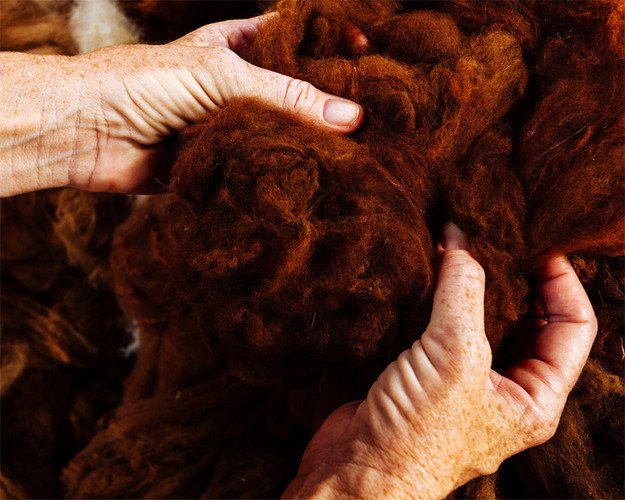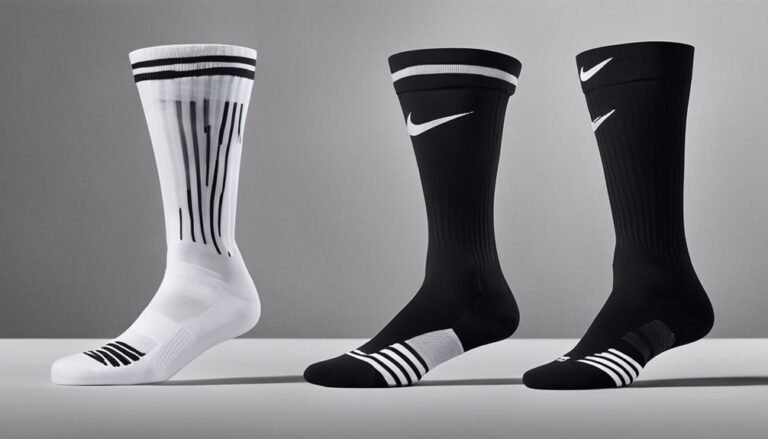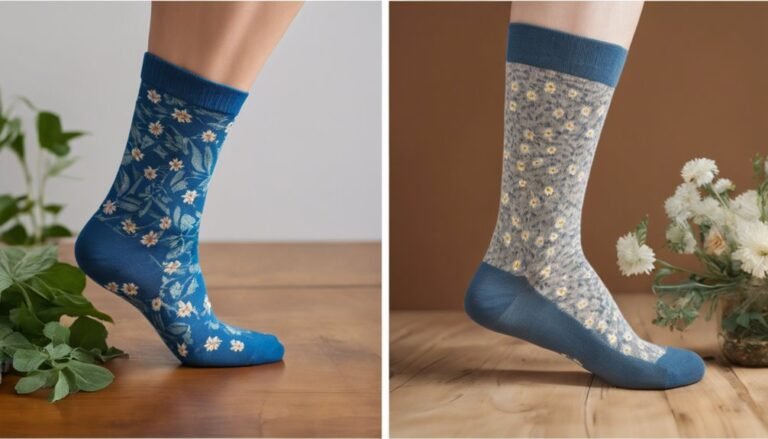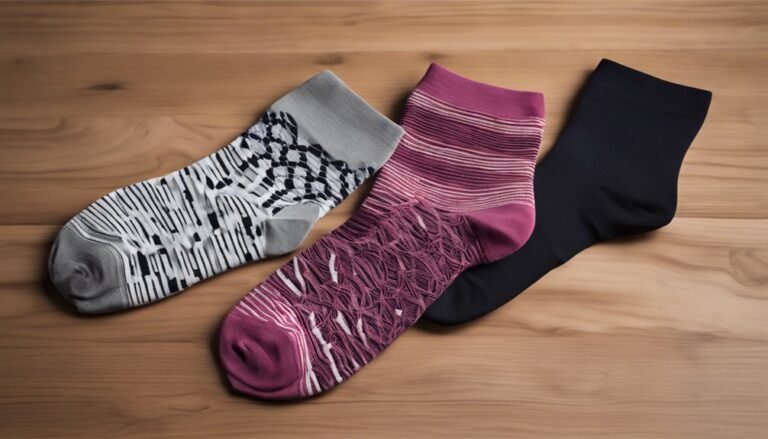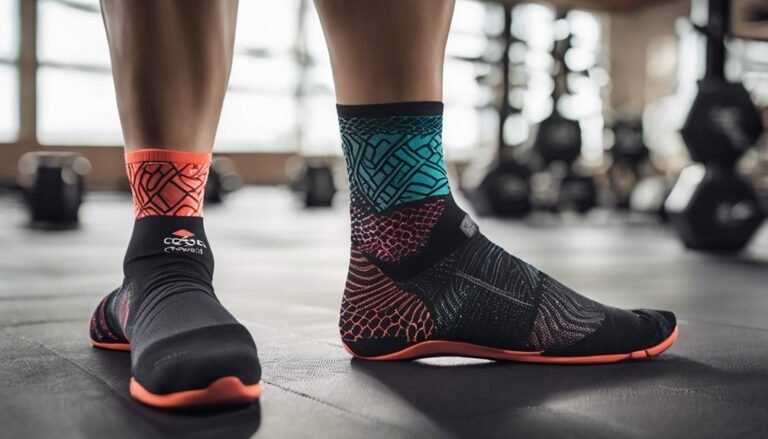Alpaca Socks Vs Merino Socks: Ultimate Comfort Showdown
Alpaca socks and Merino socks are popular choices for warmth and comfort. Both types have unique qualities that set them apart.
Choosing the right socks can be a game-changer for your feet. Whether you are hiking, lounging, or working, the type of material matters. Alpaca and Merino wool both offer excellent warmth and breathability. But which one is better for you?
Understanding the differences can help you make an informed decision. In this post, we’ll compare Alpaca socks and Merino socks. We’ll look at their features, benefits, and drawbacks. This way, you can decide which type of sock best suits your needs. Let’s dive into the world of cozy and functional footwear.
Material Comparison
When comparing alpaca socks and merino socks, the material plays a key role. Both types of fibers offer unique benefits. Understanding these can help you make an informed decision about which sock is best for you.
Alpaca Fiber Characteristics
Alpaca fiber is soft and luxurious. It feels smooth against the skin. This fiber is also hypoallergenic. It lacks the lanolin found in sheep’s wool. This makes it a good choice for sensitive skin.
Alpaca fiber has natural moisture-wicking properties. This helps keep your feet dry. It also provides excellent insulation. Your feet stay warm in cold weather. Yet, it remains breathable in warmer conditions.
Merino Wool Properties
Merino wool is known for its softness. It is finer than regular wool. This makes it less itchy and more comfortable. Merino wool is also excellent at regulating temperature. It keeps your feet warm in the cold. In the heat, it helps cool your feet.
This type of wool is highly moisture-wicking. It absorbs sweat and releases it into the air. Your feet stay dry, reducing the risk of blisters. Merino wool also has natural odor-resistant properties. Your socks stay fresher for longer periods.

Warmth And Insulation
When choosing between alpaca socks and merino socks, warmth and insulation are crucial factors. Both types of socks are known for their exceptional ability to keep feet warm. However, there are distinct differences in their heat retention and cold weather performance.
Heat Retention
Alpaca socks are renowned for their excellent heat retention. Alpaca fiber has a unique structure with microscopic air pockets. These pockets trap heat, keeping feet warm even in very cold conditions. Merino wool also provides good heat retention. It insulates well, ensuring feet stay cozy. Yet, it may not match the heat-trapping capability of alpaca fibers.
Cold Weather Performance
In extremely cold weather, alpaca socks excel. They offer superior warmth due to their high thermal properties. Alpaca fiber is also naturally water-repellent, helping to keep feet dry. Merino socks perform well in cold weather too. They wick moisture away, preventing sweat from cooling the feet. But in harsh, freezing temperatures, alpaca socks may offer an edge in warmth and dryness.
Softness And Comfort
Alpaca socks and Merino socks are often praised for their softness and comfort. Both types offer unique benefits that cater to different needs. Understanding their texture and feel, as well as their impact on skin sensitivity, can help you choose the right pair for your feet.
Texture And Feel
Alpaca socks have a silky, smooth texture. They feel luxurious against the skin. Their fibers are naturally soft and less prickly than other wools. This makes them a great choice for those who value a gentle touch.
Merino socks, on the other hand, offer a plush, cushiony feel. Merino wool is finer and softer than regular wool. It provides a cozy sensation that many find comforting. Both types of socks excel in providing a pleasant wearing experience.
Skin Sensitivity
Alpaca socks are hypoallergenic. They cause fewer allergic reactions compared to other wool types. This makes them suitable for sensitive skin. The fibers do not contain lanolin, which is often responsible for wool allergies.
Merino socks are also known for being gentle on the skin. While they do contain lanolin, the fine texture of Merino wool reduces irritation. People with mild sensitivities often find Merino socks comfortable. Both options are good for avoiding itchiness and discomfort.

Durability And Longevity
Durability and longevity are crucial factors when choosing between alpaca socks and merino socks. Both types of socks boast natural fibers that promise comfort and warmth. But how do they stand up to daily wear and tear? Which one lasts longer? Let’s explore these aspects further.
Wear And Tear
Alpaca socks are known for their resilience. The fibers are naturally strong and less prone to pilling. This means alpaca socks can withstand more friction without losing their shape or texture. They are ideal for heavy use and rough conditions.
Merino socks, on the other hand, offer a soft and smooth texture. This makes them comfortable but slightly more delicate. They may show signs of wear faster, especially in high-friction areas like the heels and toes. Regular use can lead to thinning of the fabric over time.
Lifespan Of Socks
The lifespan of alpaca socks is generally longer due to their durable fibers. Alpaca wool resists stretching and retains its form, ensuring the socks last for many seasons. Proper care, such as gentle washing and air drying, can extend their life even further.
Merino socks have a decent lifespan but require more attention. They need careful handling to avoid damage. Using a gentle wash cycle and avoiding high heat can help preserve their quality. Despite this, they may still wear out faster than alpaca socks under heavy use.
Moisture Wicking
When it comes to choosing the best socks for moisture-wicking, both alpaca and merino socks have their own benefits. Moisture-wicking socks are crucial for keeping your feet dry and comfortable. Let’s dive into how these two types of socks perform in terms of sweat absorption and dryness maintenance.
Sweat Absorption
Alpaca socks are excellent at absorbing sweat. The natural fibers of alpaca wool have hollow cores. These fibers can absorb a significant amount of moisture without feeling wet. This makes alpaca socks a great choice for those who sweat a lot.
Merino socks, on the other hand, also excel in sweat absorption. Merino wool fibers are finer and softer than regular wool. These fine fibers can absorb moisture efficiently. Merino wool can hold up to 30% of its weight in moisture without feeling damp. This property helps keep your feet dry and comfortable during activities.
Dryness Maintenance
Alpaca socks not only absorb moisture but also help maintain dryness. The fibers allow moisture to evaporate quickly. This helps keep your feet dry for longer periods. The breathability of alpaca wool is a key factor in maintaining dryness.
Merino socks also shine in maintaining dryness. The fibers of merino wool can wick moisture away from your skin. This helps to keep your feet dry and prevents blisters. The natural breathability of merino wool aids in quicker drying of the socks. This makes merino socks a reliable option for various activities.

Odor Resistance
When choosing between alpaca socks and merino socks, odor resistance becomes crucial. Nobody likes smelly feet. Let’s dive deeper into this aspect.
Bacterial Growth
Bacterial growth is the main cause of foot odor. Alpaca wool has natural antibacterial properties. This means fewer bacteria on your feet. Merino wool also fights bacteria well. But alpaca wool does a better job. Less bacteria means less odor.
Freshness Over Time
Alpaca socks stay fresh longer than merino socks. They repel moisture better. Dry feet reduce the chance of odor. Merino socks are also good. But they absorb more moisture. This can lead to more odor over time.
In summary, alpaca socks offer better odor resistance. They keep your feet dry and less smelly. Merino socks still work well. But alpaca wins in this category.
Environmental Impact
When choosing between alpaca and merino socks, their environmental impact is important. Both types of socks come from natural fibers. But their production processes and ecological footprints differ.
Sustainable Practices
Alpaca farming uses sustainable practices. Alpacas graze without damaging the land. They have soft feet that cause less harm to soil. Their diet requires fewer resources. They eat native grasses, which reduces the need for artificial feeds.
Merino sheep farming also focuses on sustainability. Many farms use rotational grazing. This practice helps maintain soil health. Sheep shearing is humane and necessary. It keeps the sheep healthy and comfortable.
Eco-friendly Benefits
Alpaca wool production is eco-friendly. Alpacas produce more fiber per animal than sheep. This means fewer animals are needed. Their waste is also used as natural fertilizer, enriching the soil.
Merino wool also has eco-friendly benefits. Wool is biodegradable and recyclable. It breaks down naturally without harming the environment. Wool production also supports rural economies and traditional farming methods.
Both alpaca and merino wool have lower carbon footprints than synthetic fibers. They are renewable resources. Choosing these socks supports sustainable and eco-friendly practices.
Price And Value
When choosing between alpaca and merino socks, price and value are important factors. Both types of socks offer unique benefits. But how do they compare in terms of cost and overall value? Let’s break it down.
Cost Comparison
Alpaca socks typically cost more than merino socks. The higher price is due to the alpaca wool being rarer and more luxurious. You can expect to pay around $20-$30 for a good pair of alpaca socks. On the other hand, merino socks are more affordable. They usually range from $10-$20 per pair. The price difference might be significant for budget-conscious buyers.
Value For Money
Despite the higher price, alpaca socks offer great value. They are durable, soft, and hypoallergenic. This makes them a long-lasting investment. Merino socks also provide good value. They are known for their moisture-wicking properties and comfort. Both options have their unique strengths, giving you value in different ways. Consider your specific needs and preferences when choosing between them.
Frequently Asked Questions
Which Is Better, Merino Or Alpaca?
Merino is softer and more breathable, while alpaca is warmer and more durable. Choose based on your specific needs.
Are Alpaca Socks Better Than Wool Socks?
Alpaca socks are warmer, softer, and more durable than wool socks. They also wick moisture better and are hypoallergenic.
Are Alpaca Socks The Warmest Socks?
Alpaca socks are among the warmest socks. They provide excellent insulation and are soft, durable, and moisture-wicking.
Is Alpaca More Itchy Than Wool?
Alpaca is generally less itchy than wool. Its fibers are smoother and softer, making it more comfortable to wear.
Conclusion
Choosing between alpaca and merino socks depends on your needs. Alpaca socks offer warmth and softness. They are perfect for cold climates. Merino socks provide comfort and breathability. Ideal for everyday wear. Both types have their own benefits. Alpaca is great for winter.
Merino works well year-round. Consider your lifestyle and preferences. Happy feet make a happy life. Make the best choice for your comfort. Your feet will thank you!

